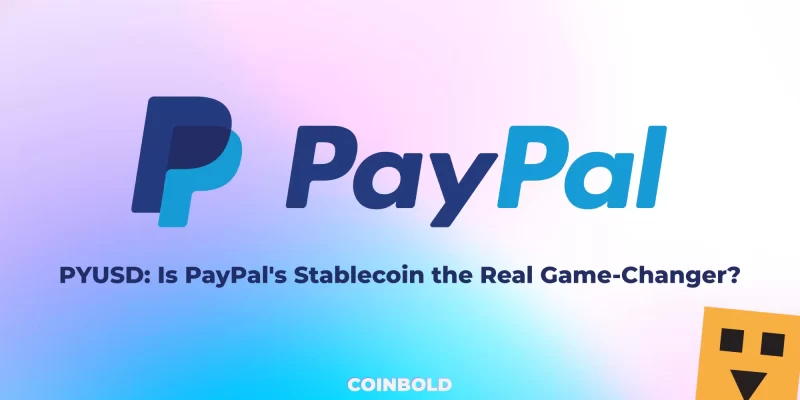In the fast-evolving landscape of cryptocurrencies and digital payments, innovation is the name of the game. PayPal, a juggernaut in the payment industry, recently stepped into the ring with its very own stablecoin, PYUSD. But is it a game-changer, as some might hope, or just another cog in the financial machinery?

William Quigley, one of the co-founders of Tether, the trailblazer in the stablecoin realm, shared his perspective on PayPal’s foray into stablecoins. “I don’t think much innovation will come from PayPal,” he remarked in a recent interview. His candid assessment raises questions about what PYUSD truly brings to the table.
PYUSD’s Long Gestation Period
It’s worth noting that PayPal has been eyeing the stablecoin arena for over eight years. This extended period of contemplation hints at the potential it saw in tapping into the vast realm of multicurrency transactions conducted by its massive user base.
William Quigley shed light on the mechanics of issuing a stablecoin. It involves holding fiat currencies in bank accounts, which are then tokenized outside the traditional banking system. This strategic move positions PayPal to reap the maximum benefits, steering clear of the limitations posed by the banking system or payment networks like Visa.
The Profit Equation
Here’s where things get interesting. While transactions occur on a private blockchain, effectively bypassing the conventional banking system, PayPal remains the key beneficiary. Quigley elaborated on this, stating, “PayPal can continue to assess consumers’ and merchants’ currency conversion fees on each transaction even though it no longer incurs those fees, and retain 100% of those fees as profit.” In essence, PayPal stands to gain not only from the reduction of costs but also from potentially increased revenue.
It’s worth noting that William Quigley, who co-founded Tether, left the company in 2015. Additionally, he was an early investor in PayPal but no longer holds any stake in the company.
PYUSD’s Impact on the Crypto Industry
Since its launch in August, PYUSD has made significant inroads into the cryptocurrency industry. This USD-backed stablecoin, built on the Ethereum blockchain, has been swiftly integrated by leading cryptocurrency exchanges like Coinbase and Huobi. Its rapid adoption underscores the appetite for stablecoins in the crypto community.
In conclusion, while PYUSD’s entry into the stablecoin arena might not herald a seismic shift in innovation, its strategic significance for PayPal cannot be ignored. The potential for cost savings and revenue generation through currency conversion fees is undoubtedly enticing. As PYUSD continues to gain momentum in the crypto industry, the question remains: Will it pave the way for more significant disruptions in the world of digital payments, or will it primarily serve as a financial boon for its creator, PayPal? Only time will tell.


